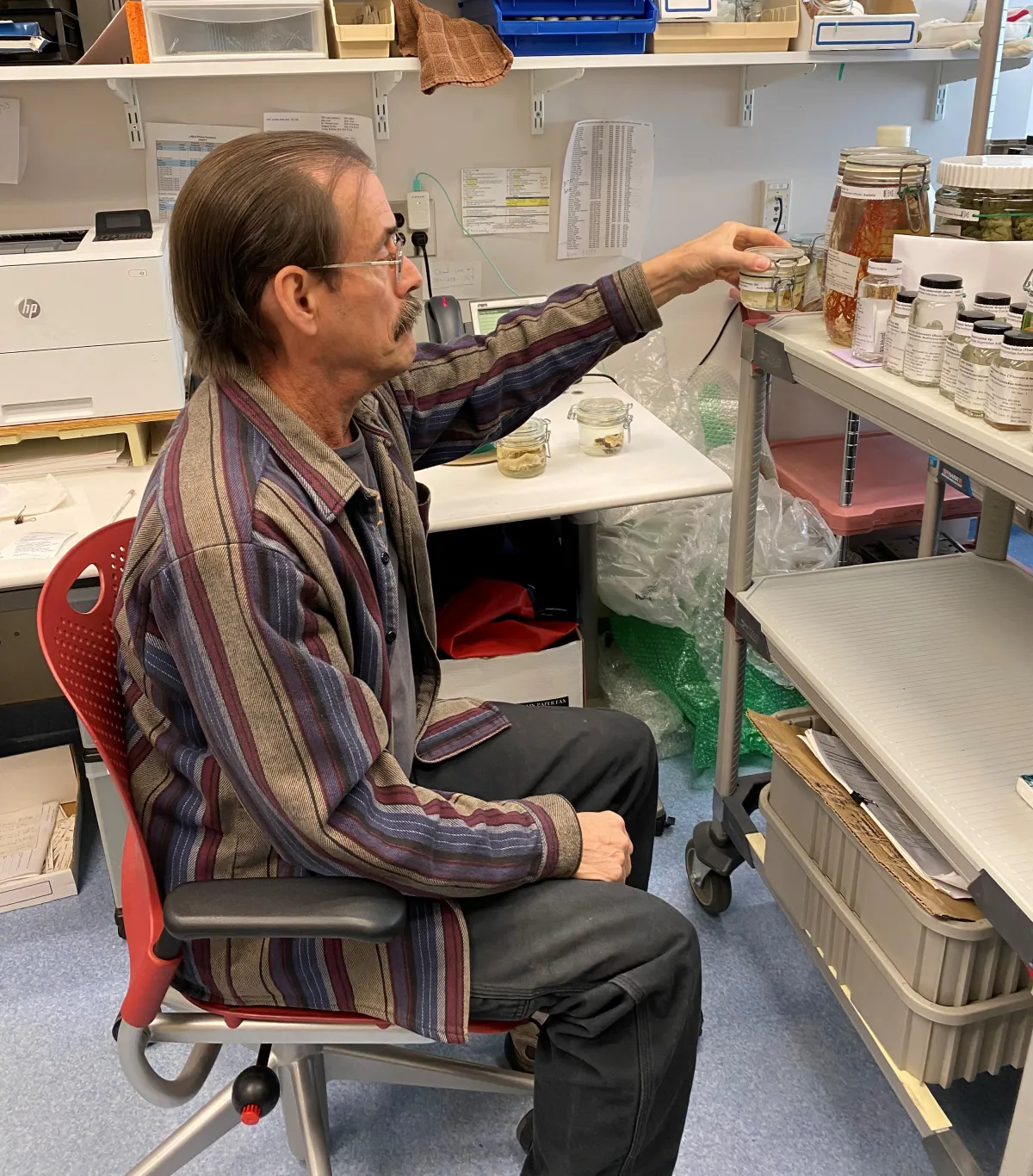
Search
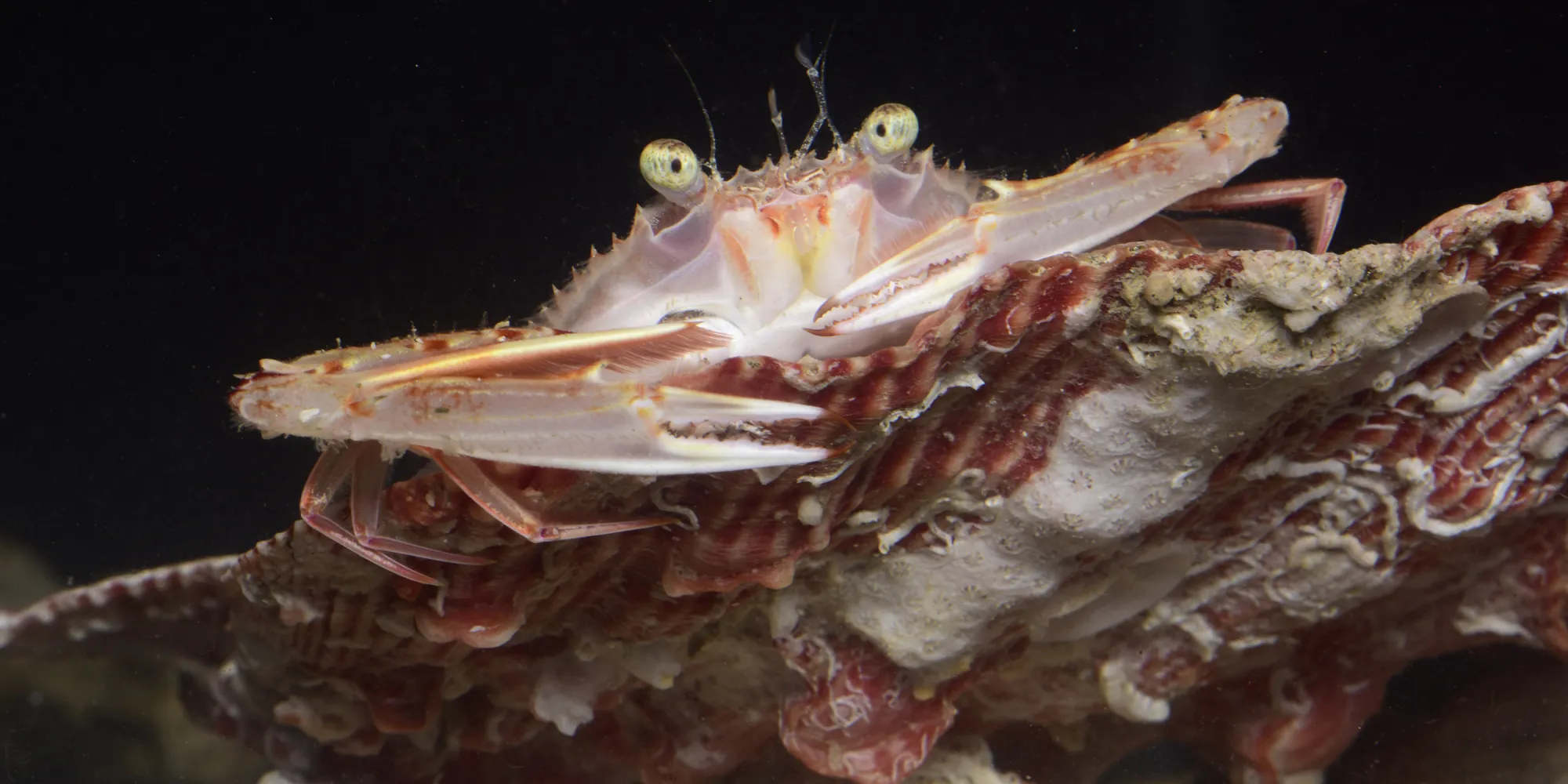
The Essential Work of Volunteers
Written by Adam Stergis
Volunteer support is indispensable for the management of the collections in the Department of Invertebrate Zoology-Lab 5 at the Museum Support Center (MSC). Specimen processing is part of the day to day workflow in Lab 5. All collections, whether the stored or the newly acquired collections (via donations, loans or return of loans), require attention. Specimens need to be curated, labeled, inventoried, packed/unpacked, etc.
IZ-Lab 5 is fortunate to have support from several dedicated volunteers. These valuable helpers not only assist with the physical care of the collections, but they also help with collecting research data, entering specimen data for inventory records, organizing and scanning research documents (taxonomy cards, scientific plates, films, publications), and filing and archiving reprints. Without their help, these projects most likely would be delayed for years, or worse, never be completed ending up in the “attic”...
Tim Coffer

Since I retired, I’ve been working more than ever on a project that I merely nibbled at over the years. The project involves cataloging specimens “quarantined” in the backlog of the Octocoral and Scleractinia collection. I’m also attempting to identify these specimens, for which I occasionally utilize experts from other museums, such as Bert Hoeksema and Leen van Ofwegen in Leiden, Oda Breedy in Costa Rica, Ralf Cordeiro in Brazil, etc. It’s a very slow process and I have no expectations of getting to all the specimens in the backlog, but as I see it, any amount of progress is better than no progress at all. Any volunteer participation to help print labels and file the specimens back into the collection would be much appreciated. I really enjoy this kind of work! I get completely immersed in the process. It’s very much like meditating. Usually, I realize that the day is coming to an end much sooner than I thought! I’m always finding an unusual specimen of one kind or another, too. In fact, I’m fairly certain I’ve cataloged a few specimens that are probably new species yet to be described.
Linda Ward

Linda was a Department of IZ employee for 35 years. She was responsible for cataloging, collection curation, bibliographic work, as well as research assistance and field work for Dr. Kristian Fauchald in Belize, Florida, France, Aldabra and Papua New Guinea. Her education background is a Bachelors of Art and Masters in Zoology from the University of Hawaii. As a volunteer, Linda has worked on collections from Dr. Fauchald and his students, as well as her own backlog of miscellaneous cataloging and curation. She has also organized Dr. Fauchald’s papers/files/manuscripts preparing material to be transferred to the Smithsonian Institution Archives. She is currently scanning a series of scientific papers on polychaete taxonomy in order to make them available to the World Register of Marine Species database. Information from that database is also being used to update the polychaetes in the Invertebrate Zoology catalog.
Heather Shull
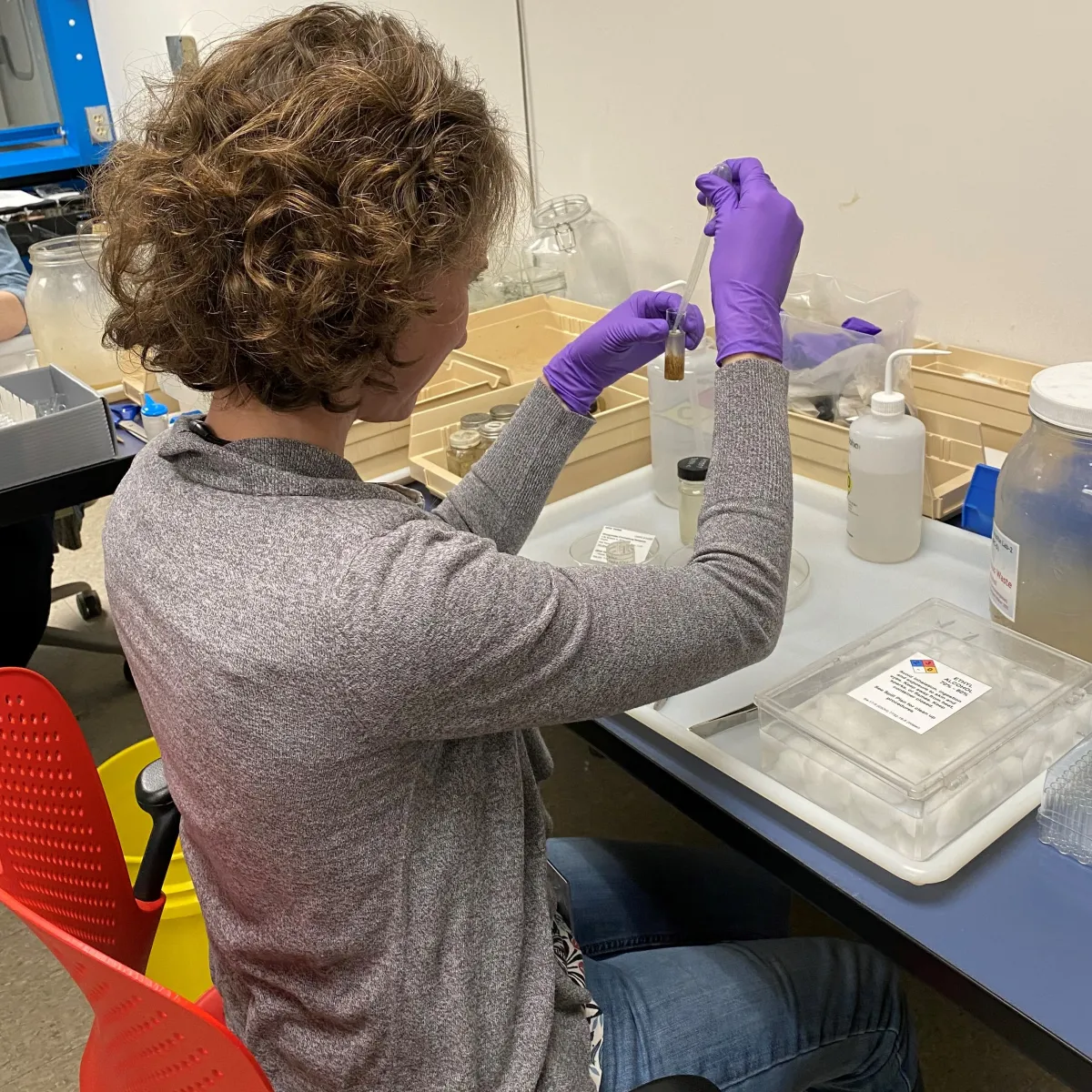
I came to the Smithsonian because I appreciate the value of natural history collections for unlocking basic scientific knowledge and informing public policy and conservation efforts. My graduate research was in phylogenetics and I spent many hours exploring museum collections, as a part of that work and really, just for fun, and always felt in awe that the shelves contained information about the past, and insight into the present, that would never be known if not preserved for future research. Now I work in science education but with a few extra hours a week I can learn a bit about how the collections are managed and share my interest with my students. It is both rewarding and enjoyable to be part of the effort to maintain a natural history collection’s potential for future knowledge.
Abigail Kabaker
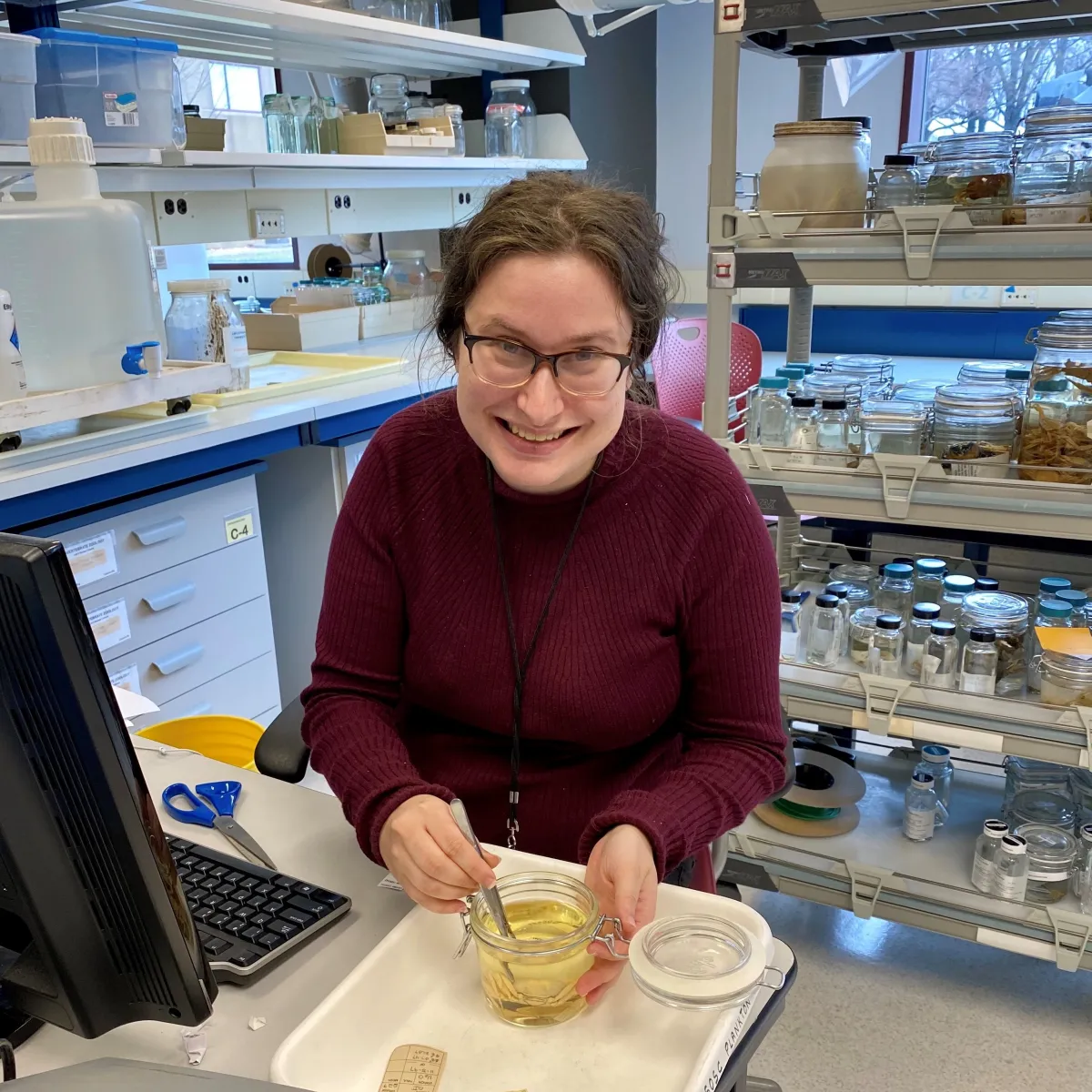
I’ve always loved museums. Growing up right outside DC, I got to know the Smithsonian museums well. I first knew I wanted to work in collections when I was in undergrad at Beloit College where I was able to do my work study in the collection of the art museum on campus. After graduating, I ended up interning, volunteering, and working in archives, but my love of objects was still there. I enrolled in George Washington University’s MA program in Museum Studies. My second of two required internships was a joint project between Smithsonian’s MCI and NMNH that introduced me to the breadth and depth of Natural History collections. After graduating, while looking for full time work, I would browse the Smithsonian behind-the-scenes volunteer opportunities for collections work that would afford me the opportunity to learn new skills. IZ posted an opportunity, I reached out, and here I am.
Sofia Barretto Thomas
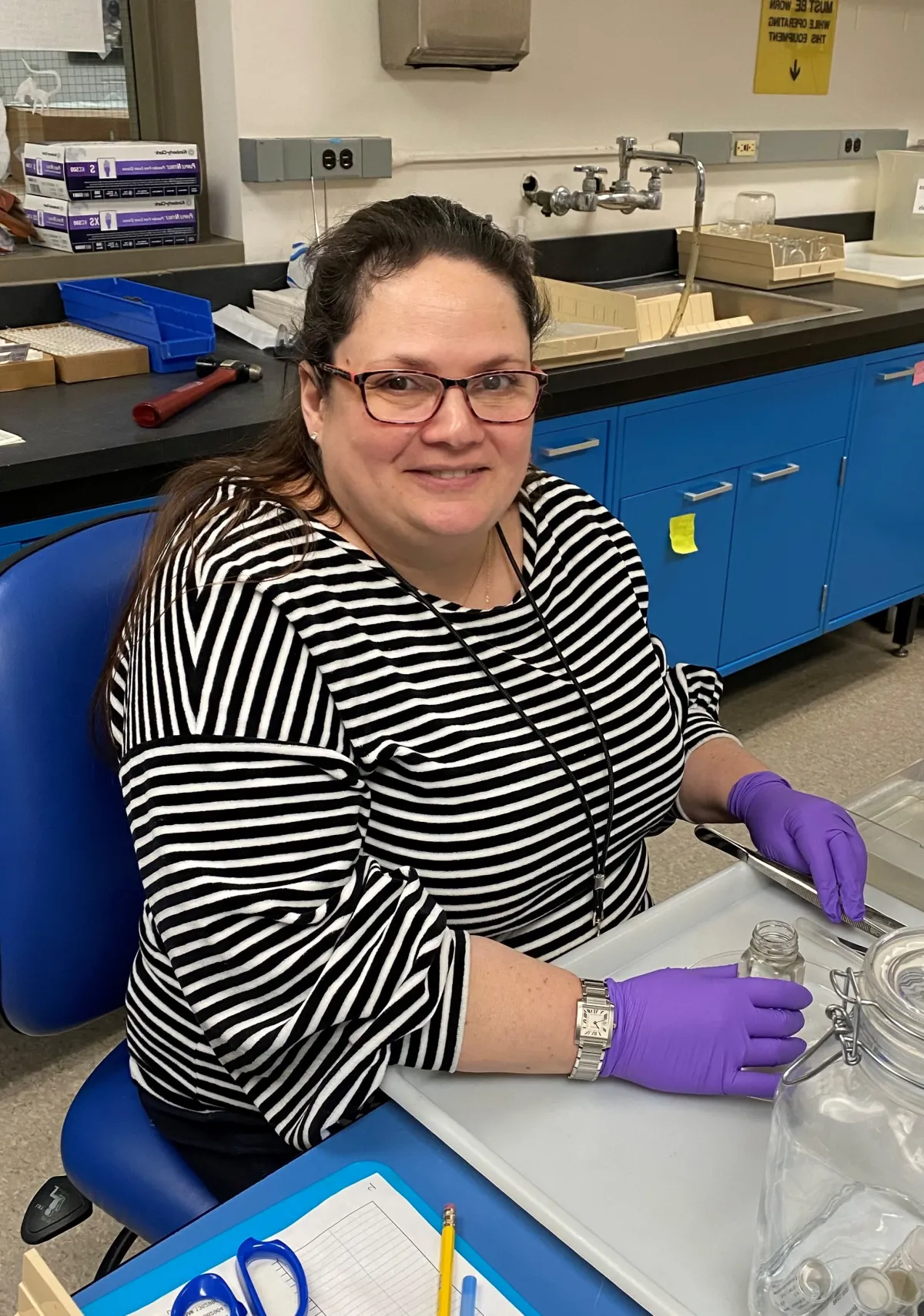
I got my bachelor’s degree in biotechnology from the Rochester Institute of Technology and did my graduate research in molecular biology in Brazil, which included work with heparin from Bivalves and Crustaceans. When my family and I moved from California to the Washington DC area a couple of years ago, one of the first things that came to my mind was the Smithsonian. I wanted to find a volunteer position where I could use my background in Science, but learn new skills, and explore new areas. Eventually I found my place in the Invertebrate Zoology Lab at the Museum Support Center. I have now been at the lab for over six months and I love my job. I really enjoy it when I have an opportunity to go into the Pods to look at the invertebrate wet specimen collection. There are thousands of jars with the most fascinating specimens. I also recently had a chance to work to re-home worms for the parasite collection and I really enjoyed seeing the different specimens. My favorite technique so far has been learning how to double vial specimens. One of the great perks of the job is meeting visiting researchers from all over the world who are very interesting people with fascinating stories to tell.
The volunteer program at the National Museum of Natural is tailored towards non-students with a desire to contribute their time and expertise as well as their love of learning. There are a number of volunteer opportunities available from research-related, to public education programs, and Behind-the-Scenes. These programs offer long- and short-term tenures, and some seasonal positions, depending on the interests of the individual.
The SI Volunteer Program has been instrumental in recruiting volunteers for many collections-based projects that are advertised via the SI volunteer opportunities website: https://naturalhistory.si.edu/join-us/volunteering.
More contact information:
Lisa Marie Porter, MA, CVA
Volunteer Manager
Office of Education and Outreach
PorterL@si.edu
202.633.8855
resource email: NMNHVolunteer@si.edu
general line: 202-633-1083